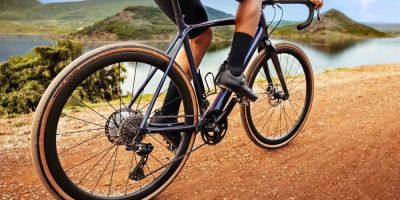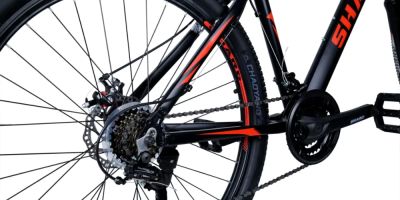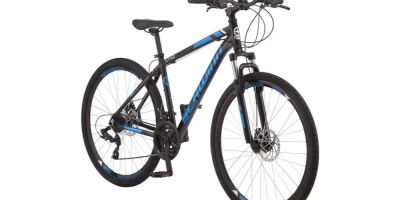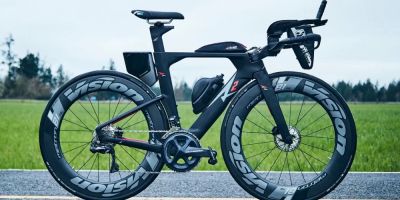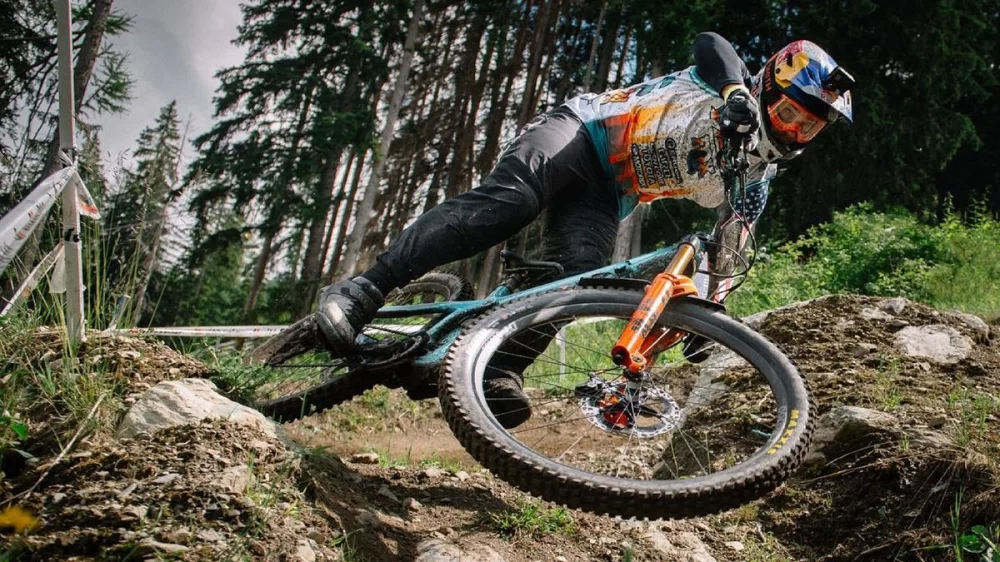
Finding the Best Mountain Bike Forks for Smooth Rides
As a passionate mountain biker, I've always strived for the smoothest ride possible. There's something exhilarating about cruising down a rocky trail, the wind in my face, and the bike effortlessly gliding over uneven surfaces. But, after years of hitting the trails, I realized that one of the most crucial components of a smooth ride is the suspension fork. If you're like me, you're constantly searching for the best mountain bike forks to ensure your rides are both comfortable and efficient. In this article, I'll walk you through some of the top choices out there and share why the right fork can make all the difference on your next adventure.

Conte's Bike Shop
3449 Wilson Blvd, Arlington, VA 22201, USA
Why Forks Matter for a Smooth Ride
Before we dive into the specifics of different mountain bike forks, let’s talk about why they’re so important. A suspension fork is not just a luxury; it's a necessity for smooth rides, especially when tackling technical trails. The fork absorbs shock from obstacles like rocks, roots, and drops, ensuring that your body doesn’t have to. Without a good suspension fork, you might find yourself bouncing and struggling to maintain control, which can quickly ruin your ride. In short, a quality fork helps you maintain control, boosts comfort, and reduces fatigue. If you're a mountain biking enthusiast, choosing the right fork could transform your riding experience.

Bicycle Barn LLC
839 Reading Rd, East Earl, PA 17519, USA
Key Features to Look for in Mountain Bike Forks
Choosing the right fork requires understanding a few key features that impact performance and comfort. I’ve learned through trial and error that considering these factors can save you a lot of frustration later on:
1. Travel
Travel refers to the distance a fork can compress when it hits a bump or obstacle. Longer travel (over 140mm) is ideal for rougher terrain, such as downhill or enduro rides, while shorter travel (80mm-120mm) suits cross-country or trail riding. The amount of travel you need depends on the type of riding you plan to do. I’ve found that for smooth rides over moderate terrain, around 120mm of travel provides the perfect balance.
2. Air vs. Coil Suspension
There are two main types of suspension systems: air and coil. Air suspension forks are lighter and more adjustable, making them great for varied riding conditions. However, they can sometimes feel less smooth than coil suspension forks, especially on technical terrain. On the other hand, coil forks provide a more consistent and plush feel but tend to be heavier. Personally, I prefer air forks because of their adjustable nature, which allows me to tweak the suspension for different trail conditions.
3. Damping System
The damping system controls how the fork reacts to bumps. The right damping system can significantly improve your ride. Some forks come with a lockout feature, which allows you to stiffen the suspension for smoother, faster rides on flat surfaces. This feature is particularly useful when transitioning from downhill to more stable terrain, as it prevents excessive bobbing. Other forks have adjustable compression and rebound damping, allowing you to fine-tune your ride to your exact preferences.
4. Weight
As with any biking component, weight matters. A lightweight fork reduces the overall weight of your bike, making it easier to handle and more efficient on climbs. However, it's important not to sacrifice strength or durability for weight. After riding for a few years, I realized that the best forks strike a balance between weight and strength, giving you the agility you need without compromising durability.
Top Mountain Bike Forks for Smooth Rides
Now that we've covered the essential features, let’s take a look at some of the best mountain bike forks I’ve used over the years. These forks are designed to deliver smooth rides, whether you're tackling technical trails or just cruising through the woods.
1. RockShox Pike Ultimate
The RockShox Pike Ultimate has become a favorite among many mountain bikers, including myself. Known for its excellent performance on aggressive trails, it offers 140mm of travel and features the Charger 2.1 damping system, which provides a smooth and controlled ride over any terrain. The fork’s air suspension is easily adjustable, making it a versatile choice for both trail and enduro riders. If you’re looking for a reliable fork that delivers consistent performance, the RockShox Pike is a solid investment.
2. Fox 34 Factory
If you want a fork that combines both weight savings and superb performance, the Fox 34 Factory is hard to beat. This fork is equipped with the FIT4 damping system, which offers three different compression settings: open, medium, and firm. The 130mm of travel provides enough cushion for most riders while remaining lightweight. I love how this fork feels on technical descents—it gives me total confidence and a smooth ride through rough sections.
3. Marzocchi Bomber Z1
The Marzocchi Bomber Z1 is a great option for those looking for a durable, high-performance fork at a reasonable price. With 150mm of travel, it's designed for aggressive riding, making it perfect for downhill and enduro trails. The Bomber Z1 uses a coil spring system, which provides a plush, consistent feel throughout the ride. For riders who prefer a more “set it and forget it” suspension, the Z1’s simplicity and ruggedness make it a solid choice.
Maintaining Your Mountain Bike Fork for Optimal Performance
One of the most important things I’ve learned over the years is that maintaining your suspension fork is essential for keeping it performing at its best. Regular servicing can extend the life of your fork and ensure smooth rides every time. Here are a few maintenance tips:
1. Regularly Check Air Pressure
If you're using an air fork, make sure to check the air pressure regularly. Air pressure can affect the fork's performance, and maintaining the correct PSI is crucial for getting the best ride. I always make it a habit to check my fork’s air pressure before a ride, especially after a long break.
2. Clean the Stanchions
The stanchions (the upper part of the fork) can accumulate dirt and grime, which may affect the fork’s performance. Regularly clean the stanchions with a soft cloth to prevent debris from getting into the seals. I’ve found that cleaning the stanchions after every ride ensures that the fork works smoothly and prevents premature wear and tear.
3. Service Your Fork Annually
Even if your fork seems to be working fine, it's a good idea to have it serviced annually. Over time, the oil in the fork can break down, and seals may wear out. Regular servicing helps maintain the fork’s responsiveness and keeps you riding smoothly.
Choosing the right fork for your mountain bike is essential for achieving that perfect, smooth ride. With so many options available, I hope this guide helps you make an informed decision. Don’t forget to keep your fork maintained so you can enjoy a smoother, more enjoyable ride for years to come. Happy riding!


